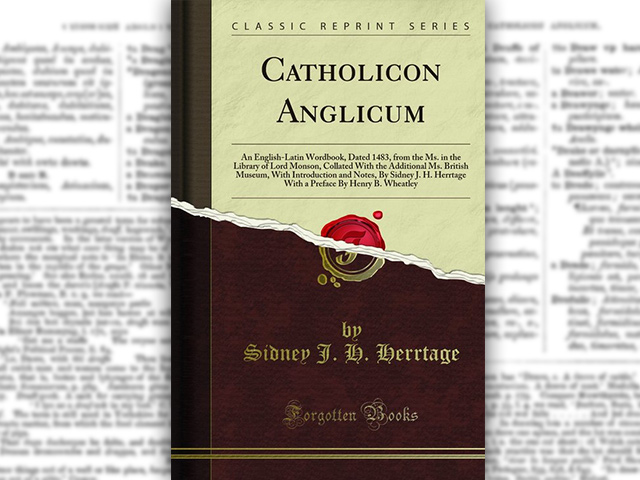<![CDATA[A Dictionary barred from leaving England is now free to go home to its buyer after an export ban that was imposed by the Department of Culture, Media and Sports on the 500 year old specimen has expired. The dictionary is one of two of its kind and the only one that has all its pages intact. It was purchased by an overseas buyer in 2013 after it was auctioned by an anonymous seller. An age old dictionary (the c) that was bought at an auction in 2013 has finally been allowed to be exported to its buyer. This came about after an imposition of the ban on its export was lifted. The Middle English-Latin dictionary dates all the way back to the 15th century and is said to be one of two of the oldest known dictionaries. The other surviving dictionary still sits in the British Library but unlike this copy it has a few pages missing, making the one in question the only complete dictionary of its kind. The author is unknown but it is surmised that he originated in Yorkshire based on the dialect used. Like the author of the manuscript, the seller’s identity still remains anonymous and as preparations are set in place to finalize its export, there are still those hoping that someone will make a “serious” offer so that it will remain on English soil. Ed Vaisley, head of Britain’s Department of Culture, Media and Sports, had originally placed on export bar on the 500 year old dictionary in an effort to preserve an important part of British history. The manuscript is seen as a great representation of how the English dictionary has evolved over the past centuries into the current form as we know it. The department had hoped that a matching offer would surface so that it could remain in the UK, but after none was forthcoming the ban was automatically lifted. The ban on items such as this comes under direct recommendations from the RCEWA (Reviewing Committee on the Export of Works of Arts and Objects of Cultural Interest). The backbone of the English dictionary rests in England; the earliest known dictionaries were merely a glossary of French, Italian and Latin words. The term dictionary was coined in 1220 by Englishman John of Garland who had written a book to aid Latin diction entitled “Dictionarius”. The dictionary has since evolved from being just a collection of words and meanings to an extensive list of English words that are alphabetized for easy reference. The imposed ban comes on the heels of a series of other restrictions of similar items put in place by the British Culture Ministry, as they make efforts to hold onto important pieces of their history. One recent notable case is that of the paintings by George Stubbs that were barred from leaving the country. The two paintings, “The Konguoro from New Holland” and “Portrait of a Large Dog” went on display in 1773 and was popular because it gave the British world a view of these never before seen animals. They were able to successfully secure the painting after the National Maritime Museum purchased them with the help of a generous donation from shipping magnate Eyal Ofer. In order to secure the rare 15th century dictionary, potential buyers would have to spend £92,500. ]]>
500 Year Old Dictionary
